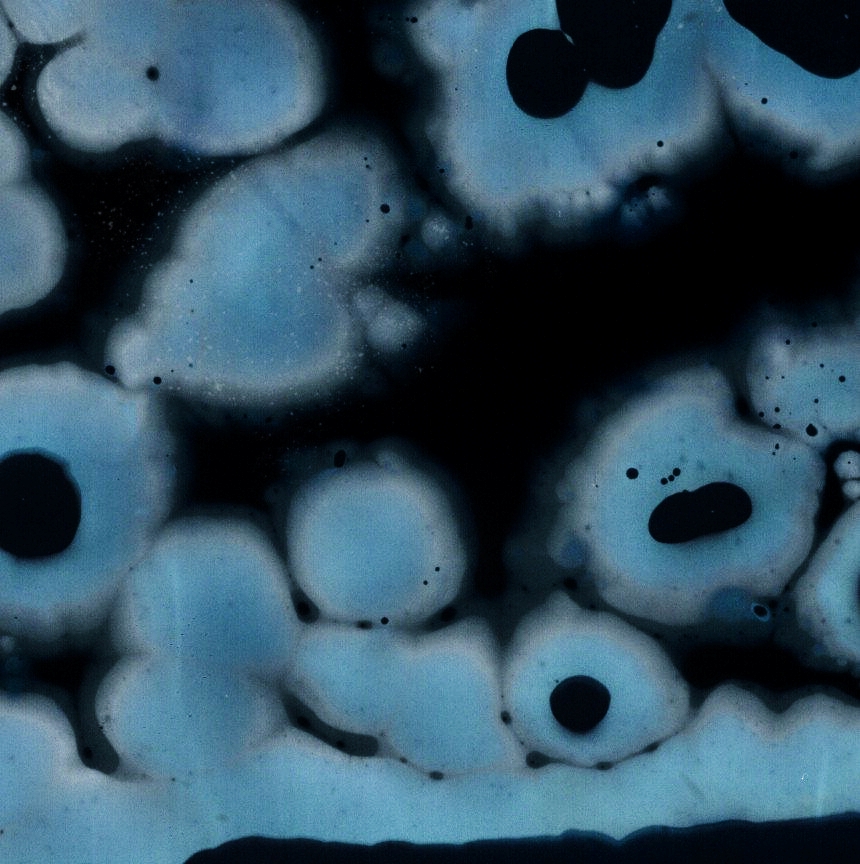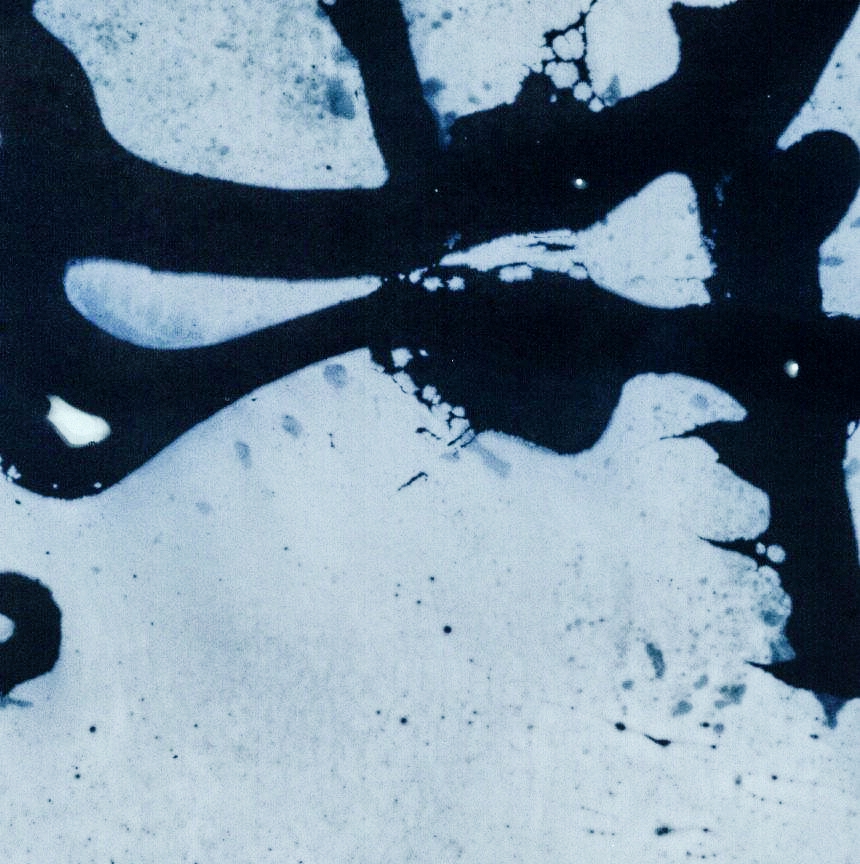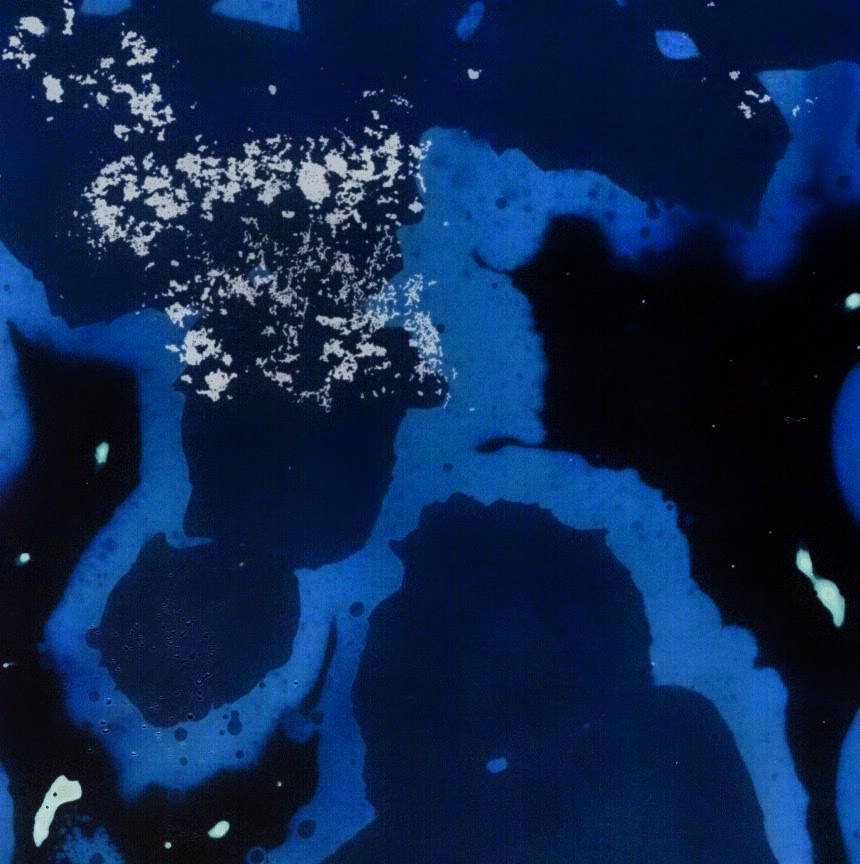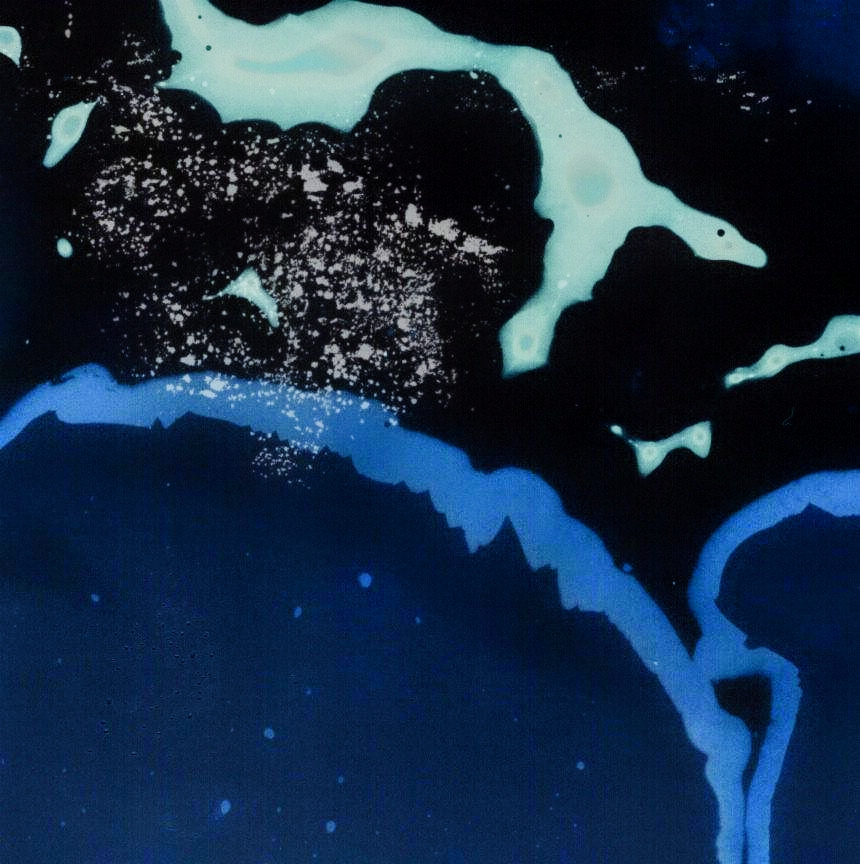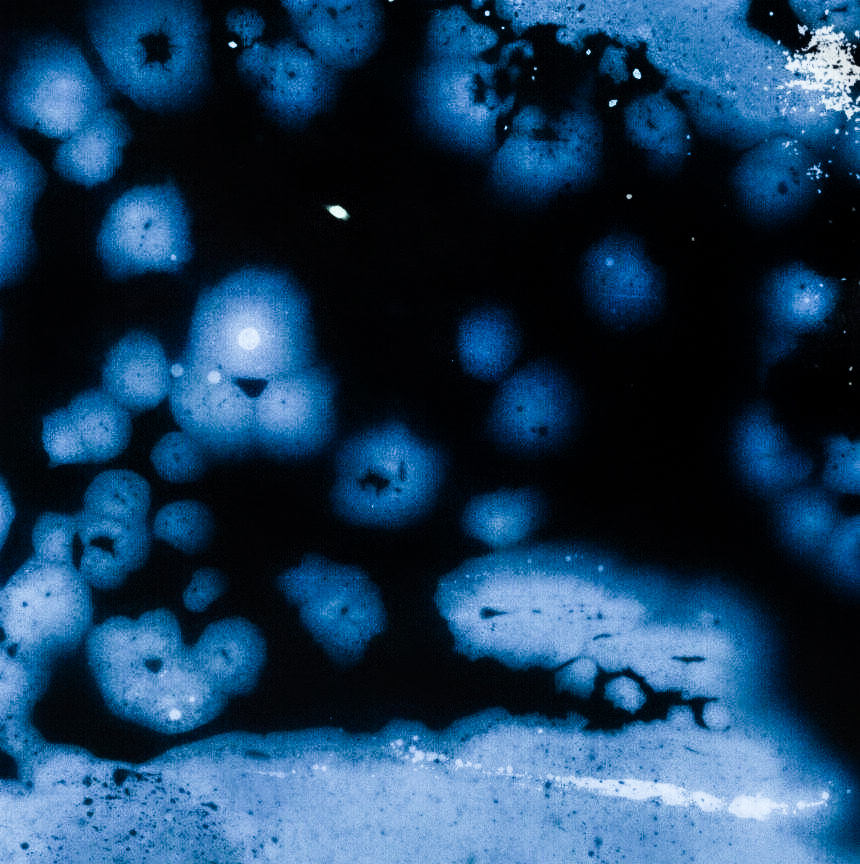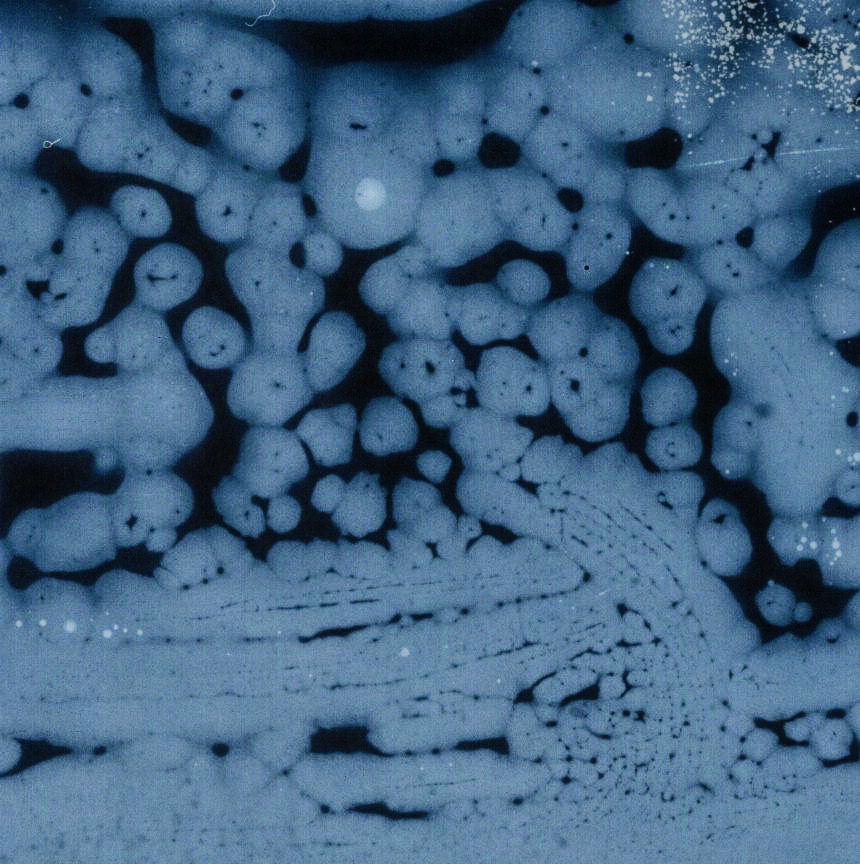"One Ingredient" Chemigrams: Cooking Oils
I've started experimenting with chemigrams again and decided to conduct a long study of "one ingredient" images. I figured that might be the best way to figure out what substances create what effects on the paper. Once I've got a handle on the chemistry, I want to start exploring some combinations that speak to the idea of liminality - the place that lives between reactions, moods, and perceptions.
Today's experiment included cooking oils - specifically olive, sesame, and coconut. I'm a big fan of sustainable methods in the darkroom, so I used my go-to Caffenol-M with these, but am unfortuantely still saddled to Ilford fixer. Nevertheless, I let the oils sit on the paper from 30sec-5min, then did alternating washes in developer, water stop baths, and fixer. It's a fun, messy process and I generally play with abandon much like a toddler with a sensory kit. In post, I treated them as negatives and worked with their positives because I really liked the shades of blue that appeared. Here's what I got!
Olive Oil
I liked these. Olive oil is a little more viscous and easy to work with at room temp. I have had success discovering some interesting Asian-informed forms doing luminograms. It was nice to see a bit of that happening organically here as well.
Coconut Oil
Coconut oil is a lot more runny at room temp and much more difficult to control. In this experiment though they produced an excellent color story and really cool dispersion spattering effects in the fixer, so that was really cool.
Sesame Oil
Sesame oil is quite viscous and doesn't like to travel much on the photo paper. However, it ended up dispersing and creating these bubble-like forms in the developer, which was pretty cool. They actually remind me of petri dishes from my undergrad molecular and cellular biology classes many moons ago.
I haven't decided what my next one ingredient will be! If you have ideas, let me know in the comments!

